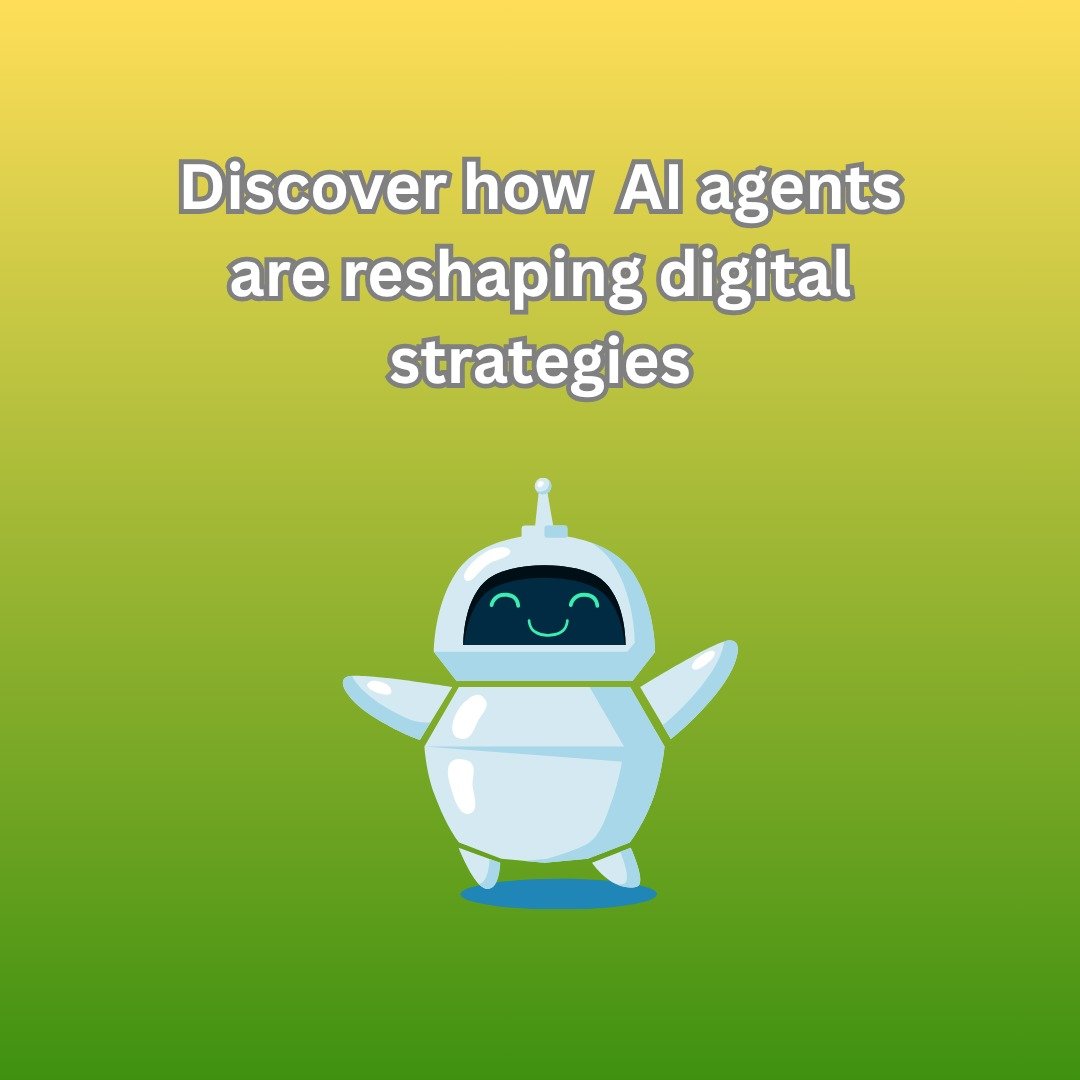AI agents are redefining what is possible in digital marketing. Once considered futuristic, these intelligent systems are now at the heart of how websites attract, engage, and convert visitors. In 2025, AI agents have evolved from simple chatbots and automation scripts into autonomous marketing strategists that can analyze data, predict behavior, and execute campaigns with both precision and creativity.
For businesses, this transformation means much more than efficiency. It signals a complete shift in how marketing works, driven by intelligence, data, and personalization at scale.
In this article, we will explore how powerful AI agents are revolutionizing website marketing in 2025, discuss their real-world applications, and explain how organizations can leverage their potential effectively and responsibly
1, The Rise of AI Agents in Digital Marketing
AI agents represent the next generation of marketing technology. Unlike traditional automation tools that simply follow programmed tasks, these agents use machine learning, natural language processing, and predictive analytics to understand context and make intelligent decisions.
In 2025, businesses across industries are deploying AI agents to manage complex website marketing activities such as:
Creating personalized website experiences that adjust content and offers dynamically.
Performing predictive SEO optimization by rewriting metadata, adjusting keywords, and restructuring pages based on search trends.
Managing ad campaigns in real time, automatically reallocating budgets based on performance.
Acting as conversational sales assistants that interact naturally with visitors and improve conversion rates.
These innovations have made AI agents indispensable assets for modern marketing teams.
2, From Automation to Intelligence
Marketing automation dominated the early digital era, but it had clear limitations. It could schedule posts or send emails, but it could not think strategically.
Today’s AI agents combine automation with intelligence. They continuously analyze user behavior, learn from outcomes, and improve their strategies without constant human input. For example:
An AI agent on an e-commerce site can identify low-performing pages and automatically rewrite product descriptions to boost sales.
A SaaS company’s AI agent can detect which web pages attract high-value customers and shift focus accordingly.
A content-focused AI agent can generate or update blog posts in real time to match trending topics and search intent.
This shift from static automation to adaptive intelligence is transforming how marketers work, allowing them to focus on creativity, strategy, and customer engagement.
3, Key Benefits of AI Agents in Website Marketing
1, Extreme Personalization
AI agents analyze massive amounts of data such as browsing behavior, purchase history, and demographics to deliver unique website experiences to every visitor. Each user sees content, offers, and calls to action that are tailored precisely to their preferences.
2, Smarter Decision-Making
AI agents go beyond providing analytics reports. They interpret data, identify causes of underperformance, and make adjustments instantly. This real-time adaptability results in agile and efficient marketing decisions.
3, Scalability and Consistency
AI agents maintain consistent quality and performance across thousands of web pages. They can manage complex marketing ecosystems without additional human labor, ensuring reliability and scalability.
4, Continuous Learning
Every interaction helps AI agents learn and refine their decision-making. Over time, they become smarter and more accurate, anticipating user behavior and optimizing experiences before issues arise.
5, Improved Customer Experience
With 24/7 responsiveness and natural communication abilities, AI agents turn ordinary websites into interactive, customer-focused platforms that engage visitors effectively and encourage loyalty.
4, Real-World Applications in 2025
AI agents are no longer experimental tools. They are transforming marketing operations across multiple industries.
E-Commerce Optimization: Retailers use AI agents to manage pricing, recommend products, and forecast inventory levels. Some systems are directly integrated with logistics for real-time stock management.
Content Marketing: AI agents generate, edit, and optimize content for SEO while maintaining brand voice and relevance.
Lead Qualification: B2B websites employ AI agents to assess visitor intent, qualify leads, and schedule meetings automatically.
Data Analytics: Marketing teams now rely on AI agents to turn raw metrics into clear insights and actionable strategies.
These examples demonstrate how AI agents have become central to the success of digital marketing in 2025.
5, Challenges and Ethical Considerations
While the advantages are substantial, businesses must address several challenges to ensure responsible AI adoption.
Data Privacy: AI agents process significant amounts of personal information. Companies must comply with global privacy regulations such as GDPR and CCPA to protect user data.
Authenticity: Overreliance on automation can weaken brand personality. Human creativity remains essential to maintain authenticity and emotional connection.
Bias and Fairness: AI agents learn from data, and biased datasets can result in unfair decisions. Regular audits are necessary to ensure accuracy and impartiality.
Transparency: Customers should always know when they are interacting with AI. Clear communication builds trust and credibility in digital relationships.
Responsible use of AI agents is not only ethical but also essential for sustainable brand reputation and long-term success.
6, How Businesses Can Prepare for the AI Marketing Era
Adopting AI agent is not about replacing marketers. It is about empowering them with intelligent tools that extend their capabilities. Here is how companies can prepare for this new era:
Identify Repetitive Processes: Start with time-consuming tasks such as lead scoring, A/B testing, or email segmentation.
Implement Gradually: Introduce AI agent for specific marketing areas like SEO or customer service before scaling up.
Educate and Train Teams: Equip marketing professionals with AI literacy so they can work effectively alongside intelligent systems.
Measure ROI Carefully: Track the direct impact of AI on conversion rates, engagement, and cost efficiency.
Maintain Human Oversight: Combine human creativity with AI precision to ensure balance and authenticity in every marketing effort.
Businesses that integrate AI agent strategically and ethically will gain a competitive edge in the rapidly evolving digital marketplace.
Conclusion
AI agent are redefining website marketing in 2025 by combining automation, intelligence, and personalization at scale. From predictive analytics and SEO optimization to real-time personalized experiences, they are transforming how brands communicate and engage with audiences.
For businesses in Kakkanad and Kerala, embracing AI agents is a strategic necessity. Companies that leverage AI agent responsibly, integrating human creativity and strategic oversight, will achieve faster growth, smarter decision-making, and superior customer experiences.
The future of digital marketing belongs to businesses that can combine AI intelligence with innovative strategies. By adopting these tools thoughtfully, companies can drive measurable results, improve website visibility, and achieve sustainable online success.


